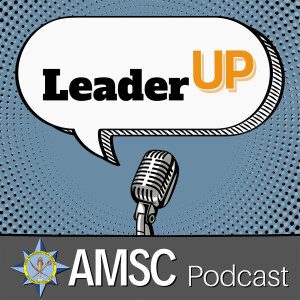
- Podcast Features
-
Monetization
-
Ads Marketplace
Join Ads Marketplace to earn through podcast sponsorships.
-
PodAds
Manage your ads with dynamic ad insertion capability.
-
Apple Podcasts Subscriptions Integration
Monetize with Apple Podcasts Subscriptions via Podbean.
-
Live Streaming
Earn rewards and recurring income from Fan Club membership.
-
Ads Marketplace
- Podbean App
-
Help and Support
-
Help Center
Get the answers and support you need.
-
Podbean Academy
Resources and guides to launch, grow, and monetize podcast.
-
Podbean Blog
Stay updated with the latest podcasting tips and trends.
-
What’s New
Check out our newest and recently released features!
-
Podcasting Smarter
Podcast interviews, best practices, and helpful tips.
-
Help Center
-
Popular Topics
-
How to Start a Podcast
The step-by-step guide to start your own podcast.
-
How to Start a Live Podcast
Create the best live podcast and engage your audience.
-
How to Monetize a Podcast
Tips on making the decision to monetize your podcast.
-
How to Promote Your Podcast
The best ways to get more eyes and ears on your podcast.
-
Podcast Advertising 101
Everything you need to know about podcast advertising.
-
Mobile Podcast Recording Guide
The ultimate guide to recording a podcast on your phone.
-
How to Use Group Recording
Steps to set up and use group recording in the Podbean app.
-
How to Start a Podcast
-
Podcasting
- Podcast Features
-
Monetization
-
Ads Marketplace
Join Ads Marketplace to earn through podcast sponsorships.
-
PodAds
Manage your ads with dynamic ad insertion capability.
-
Apple Podcasts Subscriptions Integration
Monetize with Apple Podcasts Subscriptions via Podbean.
-
Live Streaming
Earn rewards and recurring income from Fan Club membership.
-
Ads Marketplace
- Podbean App
- Advertisers
- Enterprise
- Pricing
-
Resources
-
Help and Support
-
Help Center
Get the answers and support you need.
-
Podbean Academy
Resources and guides to launch, grow, and monetize podcast.
-
Podbean Blog
Stay updated with the latest podcasting tips and trends.
-
What’s New
Check out our newest and recently released features!
-
Podcasting Smarter
Podcast interviews, best practices, and helpful tips.
-
Help Center
-
Popular Topics
-
How to Start a Podcast
The step-by-step guide to start your own podcast.
-
How to Start a Live Podcast
Create the best live podcast and engage your audience.
-
How to Monetize a Podcast
Tips on making the decision to monetize your podcast.
-
How to Promote Your Podcast
The best ways to get more eyes and ears on your podcast.
-
Podcast Advertising 101
Everything you need to know about podcast advertising.
-
Mobile Podcast Recording Guide
The ultimate guide to recording a podcast on your phone.
-
How to Use Group Recording
Steps to set up and use group recording in the Podbean app.
-
How to Start a Podcast
-
Help and Support
- Discover

Learning organizations facilitate the learning of its members and continuously transform themselves. The concept was coined through the work and research of Peter Senge and his colleagues.
The Fifth Discipline: The Art and Practice of the Learning Organization, and The Fifth Discipline Fieldbook: Strategies and Tools for Building a Learning Organization, describe five disciplines that must be mastered when introducing learning into an organization:
-Personal Mastery - begins "by becoming committed to lifelong learning," and is the spiritual cornerstone of a learning organization. Personal Mastery involves being more realistic, focusing on becoming the best person possible, and striving for a sense of commitment and excitement in our careers to facilitate the realization of potential (Senge 1990,11).
-Mental Models - must be managed because they do prevent new powerful insights and organizational practices from becoming implemented. The process begins with self-reflection; unearthing deeply held belief structures and generalizations, and understanding how they dramatically influence the way we operate in our own lives. Until there is realization and a focus on openness, real change can never take place (Senge 1990,12).
-Building Shared Visions - visions cannot be dictated because they always begin with the personal visions of individual employees, who may not agree with the leader's vision. What is needed is a genuine vision that elicits commitment in good times and bad, and has the power to bind an organization together. As Peter Senge contends, "[building shared vision fosters a commitment to the long term" (Senge 1990,12).
-Team Learning - is important because modern organizations operate on the basis of teamwork, which means that organizations cannot learn if team members do not come together and learn. It is a process of developing the ability to create desired results; to have a goal in mind and work together to attain it (Senge 1990,13).
-Systems Thinking - the ability to see the big picture, and to distinguish patterns instead of conceptualizing change as isolated events. Systems thinking needs the other four disciplines to enable a learning organization to be realized. There must be a paradigm shift - from being unconnected to interconnected to the whole, and from blaming our problems on something external to a realization that how we operate, our actions, can create problems (Senge 1990,10).
More Episodes
 2024-12-31
2024-12-31
 2024-09-12
2024-09-12
 2024-08-06
2024-08-06
 2024-03-27
2024-03-27
 2024-01-19
2024-01-19
 2023-11-02
2023-11-02
Create your
podcast in
minutes
- Full-featured podcast site
- Unlimited storage and bandwidth
- Comprehensive podcast stats
- Distribute to Apple Podcasts, Spotify, and more
- Make money with your podcast
It is Free
- Privacy Policy
- Cookie Policy
- Terms of Use
- Consent Preferences
- Copyright © 2015-2026 Podbean.com



